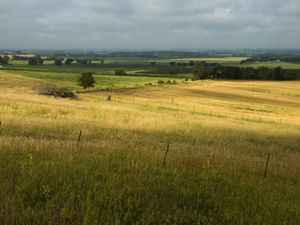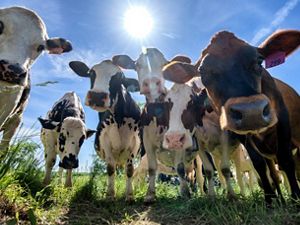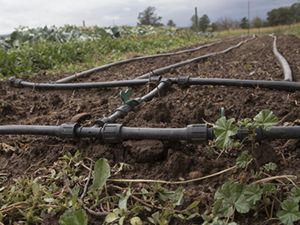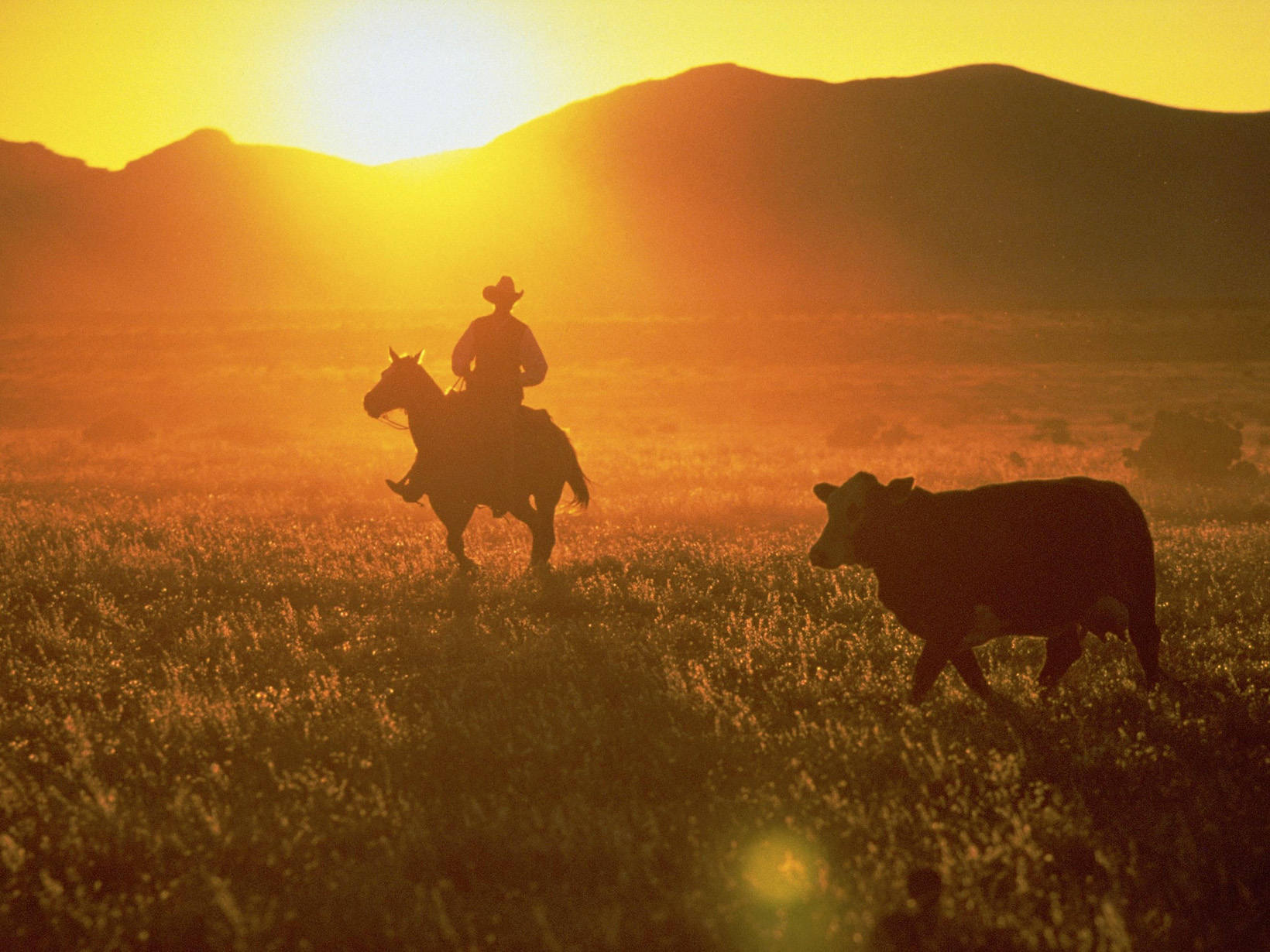The Nature Conservancy is investing in a range of innovative technologies and tools that can help accelerate the pace at which the agriculture sector can adopt regenerative agriculture practices, thus building a more resilient system that benefits people, climate and nature.
Pilot projects are critical to these efforts. Providing proof of concept for innovative solutions, pilots are opportunities to explore risk mitigation through on-the-ground testing, assessing outcomes and refining strategies on a small scale before full implementation.
TNC scientists, local experts and teams, and business partners collaborate to design and implement these pilots. Together, we are enabling fast learning, more nimble execution and the potential for large-scale replicability.
Quote
Small-scale pilot programs are a change agent that can lead to large-scale transformation.
Support Agriculture Innovation
TNC is fundraising for continued efforts to invest in and pilot innovative ag solutions and share the learnings. Learn how you can support this work.
Contact Renée Vassilos
Theory of Change
The dual global crises of biodiversity loss and climate change are at a tipping point: over one-third of biodiversity in the United States alone is at risk of disappearing, and climate change has altered natural ecosystems and impacted people and our food security through more frequent and severe weather events. Farm and ranch operations are central to addressing these challenges. They have enormous opportunities to restore nature and mitigate climate change while feeding a growing world through the adoption of regenerative practices.
But the rate by which farm and ranch operations are adopting these practices—such as cover crops, nutrient management and rotational grazing—remains low and slow due to real and perceived risks to yields and operations’ bottom lines.
To reverse this trend, TNC and partners need opportunities to learn how environmental and economic outcomes for farm and ranch operations intersect to influence required change and accelerate progress. Small-scale pilot programs are a change agent that can lead to large-scale transformation.
Developing and Testing Assumptions
Through initial pilot projects and the critical learnings and input gained, the Agriculture Innovation Strategy team has built out a dynamic framework that can be used by future agriculture innovation pilots. The framework centers on three primary assumptions to assess technology and solutions for both environmental and business outcomes: Value, Growth and Impact.

For each of these assumptions, TNC develops targeted measurements that are specific to the context and desired outcome of each pilot.
Local Pilots to Paradigm Shifts
Strong science and local expertise, paired with deep connections within the agriculture industry, uniquely position TNC to pilot these innovative solutions. By sharing lessons learned with the broader ecosystem, TNC and partners can drive market change toward the scaling of regenerative agriculture solutions for the benefit of people, climate and nature.

Warranty Pilot Projects
TNC and Growers Edge, a financial technology (or fintech) company, co-developed an agronomic-backed warranty product designed to mitigate risk for both farm operations and agriculture retailers who want to test regenerative practices. Two concurrent pilot projects were implemented from 2021 to 2023: one in Iowa, with a focus on cover crops, and the other in the Chesapeake Bay region, which centered on nutrient management practices. As major producers of corn and soy, both regions have a critical impact on the Mississippi River Basin and the Chesapeake Bay, respectively.
According to Growers Edge, “The warranty acts like a safety net for farm businesses: it’s designed to protect from financial risk if specific products or practices don’t deliver the promised results. This means farm operations can try out everything from seeds to soil amendments, and if the crop fails to meet pre-established yield benchmarks, they can cash in on the warranty to mitigate losses.”
For agriculture retailers, the warranty enables them to recommend regenerative products, processes and options with confidence, and without concern about yield losses for their customers. TNC provided up to 50% cost share of the warranty payments (if triggered) to participating farm service providers and agriculture retailers.

Key Takeaways
Interviews with 16 agronomists and farm operators from the two geographies led to the following key takeaways:
Warranty Boosts Confidence
Agriculture retailers were more confident selling regenerative products and services, as well as experimenting with new options, due to reduced reputational risk. The warranty also increased the willingness of farm operations to use a set of new products. Even without officially enrolling, the warranty offers alone encouraged farm operations to implement covered practices.
Trusted Advisors Are Critical
Advisors, who are farm operations’ trusted sources for agronomic information, inputs and application services, played a critical role in encouraging farmer program participation and, ultimately, practice adoption. In these pilots, the advisors were part of private sector, fertilizer dealer affiliated entities.
Profit Drives Decisions
The agricultural market moderates the impact of the warranty on farm behavior. The warranty does not change the economics of agricultural production. Farmers still depend on making a profit in agriculture; as the market is currently structured, this is largely dependent upon maximizing yields. Given the cost of the warrantied products, such as biologicals, farmers felt compelled to pursue increased yields. Greater yields, rather than reduced fertilizer use and costs, were seen as more likely to cover the cost of the product.
Ease of Implementation Matters
The yield warranty is more successful with practices that are “easy” to implement and when short-term economic risk is the major concern, such as utilizing alternative biological products. For practices that are “harder” to implement and/or measure, such as cover crops, a benefit/establishment warranty instead of or in combination with a yield warranty could better serve farmers.
Potential Improvements for the Offer
There should be opportunities for in-field testing and comparison of the practices and products covered by the warranty against baseline practices. This will help farm operations answer the question: “Did it work this year?” Additionally, the warranty could allow greater flexibility in which practices and products are warrantied and simplify the offer by not bundling multiple practices and products together.
Future Iterations and Additional Assumptions
The first iteration of these pilot projects also identified new assumptions that need to be tested in future iterations, as well as additional data that should be collected. The following are key questions to be explored in future iterations and/or by other ecosystem actors:
- If the warranty is short-term, does it lead to long-term adoption of regenerative practices? Does a long-term warranty have a different impact?
- How does the warranty compare to and/or complement other interventions, such as traditional cost share?
- To what degree does the warranty promote practice adoption among farm operations that did not enroll in the offer?
- How can TNC and partners reach beyond early adopters to a large majority of farm operations?
- If the warranty focused on alternative management outcomes instead of yield, such as profitability or environmental achievements, how would adoption be impacted?
- Would assumptions for the warranty be validated or invalidated when it is applied to other crop or farming systems?
Acceleration in Progress
Building on the learnings from this pilot, Growers Edge is currently working with public and private collaborators to scale its warranty offer across almost one million acres—an effort supported through the USDA’s Partnerships for Climate Smart Commodities awards program and other initiatives.

Entrepreneur in Residence
Ask any entrepreneur—it takes moxie and an innovative spirit to be successful in business. Entrepreneurs are comfortable with taking risks and navigating uncertainty in a fast-paced business environment with their sights often set on system disruption through the creation of new solutions. The Nature Conservancy (TNC) embraced this entrepreneur mindset and applied it to one of our biggest conservation challenges: protecting and improving North America’s rapidly vanishing grasslands.
In 2024, TNC hired an Entrepreneur in Residence (EIR) to help meet the goal of conserving 240 million acres of grazing lands in the United States by 2030. One of the most degraded and least protected ecosystems in the world, healthy, intact grasslands are vital to the dual crises of climate change and biodiversity loss.
With only 38% of North America’s grasslands remaining today, a good portion of which is severely degraded, TNC looked to an entrepreneur to help turn the tide on grasslands conservation.

Applying a Business Lens
EIRs are common at venture capital firms, universities, law firms, governments and some of the world’s largest companies. Now, TNC is using this mindset to safeguard vital grassland habitat and meet key climate and biodiversity benchmarks, while also securing the future of the rural communities and producers who both steward and rely on these lands for their livelihood and our food supply.
“The EIR was instrumental in helping TNC ‘get out of our own way’ in a sense and think outside the box,” says Nancy Labbe, North America Regenerative Grazing Land Strategy co-director for TNC. “Instead of developing a concept that we thought we wanted to hear, the team helped us pivot and develop a much stronger idea that will have systems change in the grazing sector.”
To apply this entrepreneurial mindset to our work, TNC experts conducted a rigorous search for an EIR and selected the 3-member Celium Group based on their expertise in ranching, technology and conservation finance.
What is an Entrepreneur in Residence?
An EIR works alongside a company or organization to help explore new opportunities and solutions. EIRs typically:
- Have experience in building and launching start-ups and/or lean business;
- Apply “fresh eyes” and differing perspectives to an existing body of work;
- Have a proven track record of efficiently, iteratively and rapidly conducting work; and
- Are comfortable taking risks and navigating uncertainty.
Understanding Gaps and Finding Solutions
The EIR considered finding or developing a piece of technology that would help expand regenerative grazing practices to avoid grassland conversion and improve land management and ecological health. Analyzing more than 500 tools and products and speaking directly with ranchers and producers, though, led them in a completely different direction.
“For projects like these, it’s good to have a north star,” says Jacob Young of the EIR team. “But you don’t want to set the deliverable just yet, because that can pigeonhole or silo your way of thinking. You want to figure out what will actually elicit change.”

After conducting a gap analysis of current software offerings, they started to see systemic challenges across all products. They identified a pattern of 12 key findings, including eroded producer trust due to software failure, adoption barriers and misaligned career incentives, among others. Further analysis of those patterns led them to realize another software tool was not the answer.
“We sensed a disconnect between venture-funded software and what ranchers actually need,” Young explained. “When you’re trying to enact systems change, you have to ask: what are the levers and drivers that can actually make those shifts happen?”
Through extensive conversations with ranchers, other industry experts and TNC staff, the EIR identified three areas ripe for accelerating the uptake of regenerative management on grazing lands across the United States:
Prime Areas for Regenerative Management
-
Enhanced Ag Tech Strategy
While many entrepreneurs are seeking to improve ranching outcomes through technology, software is being developed without producer input. A B2B (business to business) network that connects startup companies with producers and ranch advisors would provide an opportunity for a two-way flow of information during product development and ultimately more effective ranching software solutions.
-
Information Management
There is a wealth of grazing information available, including various guides, decision tools and other technologies, but this vast repository has been difficult to access and search. By harnessing the power of Large Language Model (LLM) technology, a type of artificial intelligence that uses machine learning to understand and analyze text, there is an opportunity to enable ranch advisors to easily access the wealth of knowledge available to the grazing sector, and then share it with producers.
-
Ranch Advisor Network
Ranch advisors are needed to assist producers with the myriad challenges and opportunities they face. A network of community-embedded technical advisors would effectively and efficiently administer programs, use tools and technology for improved outcomes, collect data and help augment producer skills. Ultimately, this network would improve ranch business operations, enhance community resilience and advance grasslands conservation.
Solving the Missing Piece: Ranch Advisors
"Ranch advisors and advisor networks play a key role in aiding ranchers in identifying programs, tools and practices that make ranching operations more profitable, effective and efficient,” says Carson Sleep, a 6th generation rancher and a member of the EIR team. “By keeping more ranchers on the landscape and building grassland resilience and health, advisors can help build a thriving ranching industry and bring durability to rural communities.”
Although ranch advisors provide quality assistance to ranching operations, it became clear that the extent and consistency at which they are available is lacking and not comparable to what exists in other industries such as forestry and agronomy. These advisors are key for producers tasked with managing everything from finances to land management to animal husbandry, while navigating hundreds, if not thousands, of online tools and sources of information. That leaves little time or resources to collect and analyze the data needed—and create a plan—for transitioning to regenerative management practices.
“We’ve had talks with neighbors about pooling resources to hire our own range management expert,” says Daniel Mushrush, a rancher in the Kansas Flint Hills. “If I were a millionaire, hiring away our area range conservationist from NRCS [Natural Resources Conservation Service] would be top of my list. It’s an underserved issue. On our own ranch, we are collecting data, but I think doing a poor job of developing the strategy and implementing a plan from it.”
This kind of feedback from ranchers, paired with the challenges identified in the gap analysis, led the EIR and TNC to land on a concept for a community-embedded, rancher-informed and market-driven technical assistance provider network at the regional level.
Quote: Carson Sleep
By keeping more ranchers on the landscape and building grassland resilience and health, advisors can help build a thriving ranching industry and bring durability to rural communities.
Carson Sleep
6th generation rancher and a member of the EIR team
Next Step: Launching Project RANGE
TNC is launching Project RANGE, a Ranching Advisor Network for Grazing Enterprises. Ultimately, Project RANGE will deliver environmental outcomes for grasslands, economic outcomes for ranch enterprises, social outcomes for ranching communities, and sustainability and surety of supply outcomes for supply chain actors.
“Technical service providers are a necessary tool on the diverse landscapes across our rangelands,” says Leah Peterson, executive director of the Nebraska Grazing Lands Coalition and a 5th-generation Nebraska rancher. “These resources will allow NGOs and others like us to provide the assistance today’s ranchers and land managers need as they work to keep their working lands healthy and viable.”
TNC is currently seeking partners and funders for Phase 1 of Project RANGE. Please contact Nancy Labbe and/or Kayla Sainato to learn more or download the factsheet.
Outcomes: Did collaboration between the EIR and TNC work?
Before the collaboration began, TNC developed critical assumptions to assess whether this initiative had the intended outcomes. Although the tracking of some assumptions is ongoing, TNC determined that the majority of assumptions have been validated or demonstrated progress. This proves the collaboration had the intended results and is an effective tool to accelerate our intended impact.

Based on the outcomes of this collaboration and others, we are continuing to find ways to bring entrepreneurs onboard to work alongside our experts and scientists to accelerate systems-level change.
We Can’t Save Nature Without You
Sign up to receive monthly conservation news and updates from TNC.

Explore Further

Partnering with NRCS in the Great Plains
In a partnership enabled by the Farm Bill, The Nature Conservancy and Natural Resource Conservation Service are delivering conservation assistance across the Great Plains.

Dairy Industry Aims for GHG Neutrality
Nature Conservancy scientists have developed a Roadmap for a Sustainable Dairy System to help the dairy supply chain meet sustainability and environmental goals.

Soil Management – A Foundational Strategy for Conservation
Soil is more than just a geological backdrop—healthy soil is the basis of all life and provides water, food, clean air, a stable climate and good health.
By Deborah Bossio

